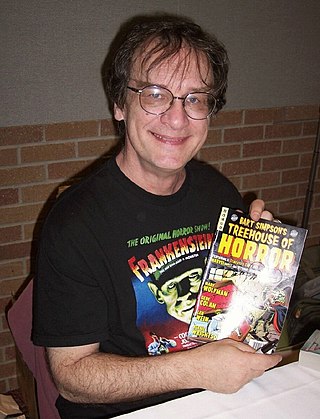
Bernard Albert Wrightson, sometimes credited as Bernie Wrightson, was an American artist, known for co-creating the Swamp Thing, his adaptation of the novel Frankenstein illustration work, and for his other horror comics and illustrations, which feature his trademark intricate pen and brushwork.
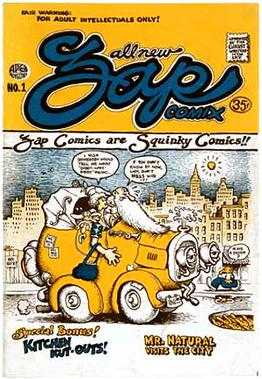
Underground comix are small press or self-published comic books that are often socially relevant or satirical in nature. They differ from mainstream comics in depicting content forbidden to mainstream publications by the Comics Code Authority, including explicit drug use, sexuality, and violence. They were most popular in the United States in the late 1960s and 1970s, and in the United Kingdom in the 1970s.

Scott McCloud is an American cartoonist and comics theorist. He is best known for his non-fiction books about comics: Understanding Comics (1993), Reinventing Comics (2000), and Making Comics (2006), all of which also use the medium of comics.

Kim Deitch is an American cartoonist who was an important figure in the underground comix movement of the 1960s, remaining active in the decades that followed with a variety of books and comics, sometimes using the pseudonym Fowlton Means.
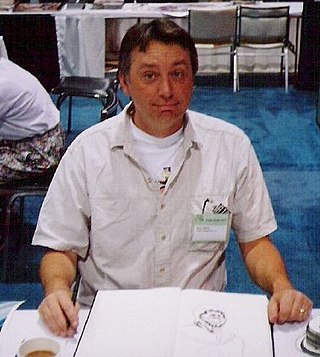
Richard Veitch is an American comics artist and writer who has worked in mainstream, underground, and alternative comics.
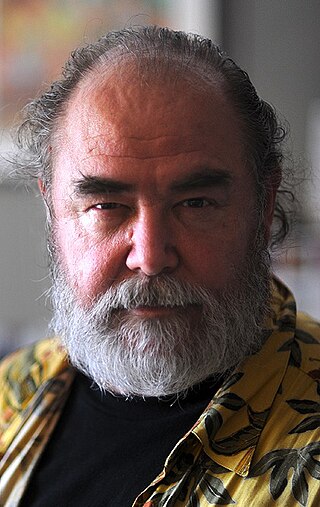
Michael William Kaluta, sometimes credited as Mike Kaluta or Michael Wm. Kaluta, is an American comics artist and writer best known for his acclaimed 1970s adaptation of the pulp magazine hero The Shadow with writer Dennis O'Neil.

Not Brand Echh is a satiric comic book series published by Marvel Comics that parodied its own superhero stories as well as those of other comics publishers. Running for 13 issues, it included among its contributors such notable writers and artists as Stan Lee, Jack Kirby, Gene Colan, Bill Everett, John and Marie Severin, and Roy Thomas. With issue #9, it became a 68-page, 25¢ "giant", relative to the typical 12¢ comics of the times. In 2017, a 14th issue was released.

Kitchen Sink Press was a comic book publishing company founded by Denis Kitchen in 1970. Kitchen Sink Press was a pioneering publisher of underground comics, and was also responsible for numerous republications of classic comic strips in hardcover and softcover volumes. One of their best-known products was the first full reprint of Will Eisner's The Spirit—first in magazine format, then in standard comic book format. The company closed in 1999.

Denis Kitchen is an American underground cartoonist, publisher, author, agent, and the founder of the Comic Book Legal Defense Fund.

Megaton Man is a satirical superhero created by cartoonist "Dandy Don" Simpson. A parody of the superhero genre, Megaton Man is a gigantically-muscled but dim-witted oaf who starred in Simpson's cheerfully absurd stories.

All-American Publications was one of two American comic book companies that merged to form the modern day DC Comics, one of the two largest publishers of comic books in the United States. Superheroes created for All-American include the original Atom, Flash, Green Lantern, Hawkman, and Wonder Woman, all in the 1940s' Golden Age of Comic Books.

Crestwood Publications, also known as Feature Publications, was a magazine publisher that also published comic books from the 1940s through the 1960s. Its title Prize Comics contained what is considered the first ongoing horror comic-book feature, Dick Briefer's "Frankenstein". Crestwood is best known for its Prize Group imprint, published in the late 1940s to mid-1950s through packagers Joe Simon and Jack Kirby, who created such historically prominent titles as the horror comic Black Magic, the creator-owned superhero satire Fighting American, and the first romance comic title, Young Romance.
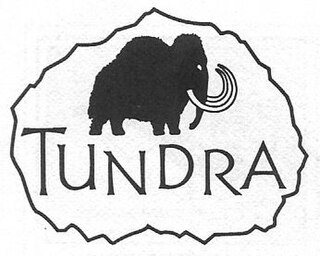
Tundra Publishing was a Northampton, Massachusetts-based comic book publisher founded by Kevin Eastman in 1990. The company was founded to provide a venue for adventurous, creator-owned work by talented cartoonists and illustrators. Its publications were noted in the trade for their high production values, including glossy paper stock, full-color printing, and square binding. Tundra was one of the earlier creator-owned companies, before the formation of Image Comics and Dark Horse Comics' Legends imprint.
James Vance was an American comic book writer, author and playwright, best known for his work from Kitchen Sink Press and in particular the lauded Kings in Disguise.
Kathleen Webb is an American comic book writer and artist and one of the first female writers for Archie Comics.
Robert Triptow is an American writer and artist. He is known primarily for creating gay- and bisexual-themed comics and for editing Gay Comix in the 1980s, and he was identified by underground comix pioneer Lee Marrs as "the last of the underground cartoonists."

Dan Steffan is an American cartoonist and writer who has contributed to both mainstream and underground publications for several decades.
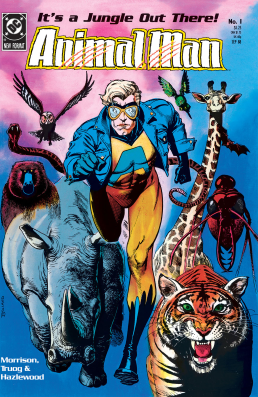
Animal Man is a superhero comic book ongoing series published by DC Comics starring the superhero Animal Man. The series is best known for the run by writer Grant Morrison from issue #1 to #26 with penciller Chas Truog who stayed on the series until #32.
Leonard Rifas is an American cartoonist, critic, editor, and publisher associated with underground comix, comics journalism, left-wing politics, and the anti-nuclear movement. He is notable for his contributions to the form of minicomics as well as publishing Japanese manga in the United States. Rifas' publishing company, EduComics, operated most actively from 1976 to 1982.















